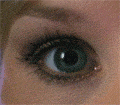|
Jesus don't tell people taking percocets to switch to suboxone, wtf https://forums.somethingawful.com/showthread.php?threadid=2621435&pagenumber=367&perpage=40#post468879086
|
|
|
|

|
| # ? May 15, 2024 12:19 |
|
KingEup what's your "angle", on addiction, history-wise? Like are you a former addict, had parents with issues (I'm this), are a doctor, what? Just curious and interested in the topic? Like I don't think you're a pharma rep but I don't get you at all.
|
|
|
|
It's almost like it's not happy well-adjusted people who spiral into addiction most often!
|
|
|
|
|
KingEup posted:Show me data that says iatrogenic addiction is the the norm. Does iatrogenic addiction include people who develop a "taste" for opiates through their prescribed medication and then seek them out through illegal channels later? Because I imagine many people were prescribed them for a while and that they developed a preference for opiates as a result that lead to them seeking out heroin or whatever. edit: Haha Jesus Christ he seriously advocated Suboxone for a percocet addiction? The fact that he thinks Suboxone has more "mild" opiate affects/withdrawal makes me think he doesn't have access to any information beyond what's on the official Suboxone website or something. (I mean, it does have more mild affects if you already have a huge tolerance, but it would absolutely hit someone with a mild habit like a ton of bricks.) Tangentially related to this, I find that many Suboxone doctors prescribe doses that are WAY too high. I was initially prescribed 24mg of Suboxone, and I later realized that I didn't need more then like 2-4mg (though at least tapering from 24mg to 4mg was super easy). Ytlaya fucked around with this message at 19:20 on Jan 30, 2017 |
|
|
|
If overprescription and addiction due to medically prescribed opiates is the issue, why do opiate addiction rates trend nearly perfectly with indices of economic distress? Are poorer people simply in pain more often?
|
|
|
|
call to action posted:If overprescription and addiction due to medically prescribed opiates is the issue, why do opiate addiction rates trend nearly perfectly with indices of economic distress? Are poorer people simply in pain more often? More importantly, over prescribing is merely one of many contributing causes to the current opioid crisis. It's not the only one, nor is it the main one.
|
|
|
|
Albino Squirrel posted:There is actually a greater risk of chronic pain issues in impoverished populations due to a) higher trauma incidence, b) more job-related injuries in manual employment, and c) higher degree of emotional distress which can lead to increased pain perceptions. Also remember that's reported addiction issues; someone with more financial and social resources may be more able to compensate for their addiction issues and so may be less likely to show up in the data. A non-poor person also has an easier time just affording a prescription from a pill mill forever and ever especially when insurance comes into play. A certain amount of the opioid epidemic was middle class and up people getting long term refillable prescriptions from the pill mill doctors. Totally legal and totally deniable. Well yeah I'm not a junkie like those dirty, poor heroin addicts I just have this knee that acts up and my back hurts sometimes. That's probably not going to actually be reported as an addiction. A less wealthy person who can't just visit the doctor and whine whenever they want more drugs is more likely to get arrested by turning to illegal channels to get said drugs. A lot of it is the Rush Limbaugh "I'm not an addict I just...had a problem" type of things.
|
|
|
|
Opioid habit...it's only a problem if/when you run out! And how can one be an addict if they've never tried or wanted to quit?! Riddle me that, will ya?
|
|
|
|
|
Ytlaya posted:Does iatrogenic addiction include people who develop a "taste" for opiates through their prescribed medication and then seek them out through illegal channels later? That is a good layman's definition of iatrogenic. Just means caused by doctors inadvertently.
|
|
|
|
Albino Squirrel posted:Also remember that's reported addiction issues; someone with more financial and social resources may be more able to compensate for their addiction issues and so may be less likely to show up in the data. That's a really good point. The delta we see between rich and poor communities is probably largely due to those folks already being closer to rock bottom. What do you think the main cause is?
|
|
|
|
Along those lines, the recent This Life podcast with Battlefield Addiction was interesting. The guests aren't great as far as "how to be on a podcast" goes, but you hear a lot about different kinds of users in different places, different reasons for their using, different approaches to treatment, how things are changing, etc. http://drdrew.com/thislife/ As a total aside, I think Dr. Drew thinks doctors are responsible for the epidemic and NOT pharma for a few reasons, but one of them is because he got ID'd as taking $ from GSK for talking up Wellbutrin's lack of sexual side effects (or even positive sexual side effects), which he defends himself from by saying it was consistent with his clinical experience etc. In other words, pharma is just pharma being pharma and it's the doctor's job to do the right thing, which he claims he did.
|
|
|
|
I mean, I've been on Wellbutrin and what he said about it is pretty much on the money in my experience. Dr. Drew is a loving idiot but Wellbutrin is not why.
|
|
|
|
Yeah I think he basically did get paid to tell what he thought was true, problem is he didn't disclose he was paid by GSK etc. A no harm no foul thing but also pretty obviously not-great ethics-wise.
|
|
|
|
pangstrom posted:As a total aside, I think Dr. Drew thinks doctors are responsible for the epidemic and NOT pharma for a few reasons, but one of them is because he got ID'd as taking $ from GSK for talking up Wellbutrin's lack of sexual side effects (or even positive sexual side effects), which he defends himself from by saying it was consistent with his clinical experience etc. In other words, pharma is just pharma being pharma and it's the doctor's job to do the right thing, which he claims he did. While I think he's technically correct in the case of Wellbutrin, one of the worst/dumbest things in psychiatry is psychiatrists who use their clinical experience to attribute a bunch of random characteristics to various antidepressants. I've had several psychiatrists in the past talk about how this or that SSRI/SNRI is better for energy or whatever, and it's a bunch of unscientific nonsense.
|
|
|
|
Ytlaya posted:While I think he's technically correct in the case of Wellbutrin, one of the worst/dumbest things in psychiatry is psychiatrists who use their clinical experience to attribute a bunch of random characteristics to various antidepressants. I've had several psychiatrists in the past talk about how this or that SSRI/SNRI is better for energy or whatever, and it's a bunch of unscientific nonsense. pangstrom posted:Yeah I think he basically did get paid to tell what he thought was true, problem is he didn't disclose he was paid by GSK etc. A no harm no foul thing but also pretty obviously not-great ethics-wise. This is exactly why the fields of psychiatry and "pain management" are complete bullshit. It is literally impossible to be a good scientist when your getting paid by other people to believe in the thing that benefits them. There are good reasons why the vast majority of clinical data funded by big pharma is irreproducible by independent study (psychiatry being the poster child for this issue).
|
|
|
|
Dang, psychiatry is complete bullshit. Guess it's time to throw my meds in the trash.
|
|
|
|
Speaking of bullshit, read About the "Porter and Jick" letter and all the ways it has been abused.
|
|
|
|
Interesting, knew vaguely that "giving opiates in the hospital didn't result in addiction" got fuzzed into "giving opiates doesn't result in addiction" but didn't know kind of the original lynch-pin of that.
|
|
|
|
pangstrom posted:Interesting, knew vaguely that "giving opiates in the hospital didn't result in addiction" got fuzzed into "giving opiates doesn't result in addiction" but didn't know kind of the original lynch-pin of that. Or how it morphed from a one paragraph latter to a full blown study over the years.
|
|
|
|
skull mask mcgee posted:Dang, psychiatry is complete bullshit. Guess it's time to throw my meds in the trash. Probably, the best research (independent, not industry funded) refutes the efficacy and safety of every major class of psychiatric medication. SSRIs Efficacy concerns, increased suicide risk, increased violence: http://www.medscape.com/viewarticle/842034 http://center4research.org/child-teen-health/suicide/do-anti-depressants-increase-suicide-attempts/ Neuroleptics (Anti-psychotics): 20-year decreased life-span, Efficacy, Safety, Brain Shrinkage: https://www.psychologytoday.com/blog/science-isnt-golden/201109/full-disclosure-needed-about-psychiatric-drugs-shorten-life https://www.madinamerica.com/2013/06/antipsychotics-and-brain-shrinkage-an-update/ https://www.nimh.nih.gov/about/directors/thomas-insel/blog/2013/antipsychotics-taking-the-long-view.shtml Stimulants: Not even going to bother, use google. The common thread between all these classes of medications? Their benefits were trumped up, while their negative sides were greatly downplayed. Wonder why pharma companies and pharma paid researchers would do that? There is also the curious fact that every (supposedly distinct) psychiatric condition is treated with the same favorite drug of the year. If OCD, depression, ect. were different biological conditions as psychiatrists claim, then why does is the same exact drug used to treat both? There is also the failure to produce a single lab test after over 100 years of research of a "scientific medical field." If you want to pay for snake oil that will lower your cause your heart to explode then be my guest, but that doesn't make psychiatry science or proper medicine.
|
|
|
|
I'm not reading your first link because it requires a login. Your second link literally says that they didn't find SSRIs increase suicide rates in adults, and then goes on about weighing the benefits vs. the risks of medication without making any of the blanket claims you think they are making. I'm not reading the rest of your links because I assume they are similarly misinterpreted garbage. I'd love to see you try and take down stimulants, since ADHD medications are incredibly effective for many people suffering from the disorder, including myself. I was diagnosed as an adult, and being medicated was like putting glasses on for the first time after a lifetime being nearly blind. I also take Sertraline, which almost immediately eliminated my noise/touch sensitivity issues, and once it built up in my system, it greatly reduced my anxiety. Do these drugs have side effects? Yes. Many of them greatly reduced after a short period taking them as my body adjusted to them. I will likely be taking ADHD medication for most of the rest of my life, since it is a permanent disorder. I am ok with this, as are many others that are in the same position.
|
|
|
|
skull mask mcgee posted:Your second link literally says that they didn't find SSRIs increase suicide rates in adults, and then goes on about weighing the benefits vs. the risks of medication without making any of the blanket claims you think they are making. Actually, you didn't read past the first paragraph. The 2015 study did find increased rates of suicide among adults [see edit]. Again, there is a trend where newer studies tend to show more results for suicide than older studies. Partly because of the big blowout over SSRI's causing suicides reigniting independent research into the topic. The article pretty much stated that SSRI should never be used except as a last resort. Instead, much like opiods, they are prescribed as a first resort because of pharma's influence over prescribing practices. There are serious questions regarding the efficacy of SSRI's, here is another link to a time article from 2012 when these these revelations first came out in the news: http://healthland.time.com/2012/01/18/new-research-on-the-antidepressant-versus-placebo-debate/. For stimulants, the biggest arguments against them come from not short-term use, but rather the effects of long term use on the brain. Here is a pretty popular article about it: http://journal.frontiersin.org/article/10.3389/fnsys.2014.00038/full Most of this research focuses on children and adolescents although the risk is most likely also present in adults. skull mask mcgee posted:I was diagnosed as an adult, and being medicated was like putting glasses on for the first time after a lifetime being nearly blind. As someone who has taken stimulants for an unrelated medical condition, this feeling is simply the feeling of getting "high" on stimulants. Everyone feels that way if they take enough of an upper: that is why people smoke crack and snort cocaine. You can believe what you want, if it works for you then w.e. However, I must again ask, if these conditions have a biological component then why has psychiatry yet to show the hard evidence? Where are the brain scans, the blood tests, or the specific genetic markers. Every couple years there is this big celebration of "finding the proof" with some new technology but it always turns out to be nothing when the evidence is looked at more closely. After 100 years of the same pattern, it has becomes pretty obvious. Edit: I actually misread that particular article. It was citing a comparison of older anti-depressents vs SSRIs. Instead, here is another article talking about SSRIs. ://www.drugwatch.com/ssri/suicide/ twig1919 fucked around with this message at 05:56 on Feb 10, 2017 |
|
|
|
twig1919 posted:Probably, the best research (independent, not industry funded) refutes the efficacy and safety of every major class of psychiatric medication. This is an staggeringly uneducated post that's about on the same level of ignorance as vaccine denial. The sources you posted there are summaries about an amalgamation of articles, and just from reading the titles of the actual articles at the bottom of the pages, I can tell they are seriously misinterpreting the data. Let's talk about antidepressants first. One article you linked doesn't work, but the second one discusses suicide risk and aggression in children. Increased suicide risk in antidepressants is an interesting thing. Essentially if someone gets very clinically depressed, they can get to the point that they are so apathetic that they don't have the energy or will to even commit suicide. An antidepressant can get people feeling better enough to actually have the energy to go forward with the suicidal act. This is why it can be safer to treat someone who is that clinically depressed in an inpatient setting. This applies to adults and children. In terms of general suicide risk, the summary you presented yourself lists 3 different meta-analyses that show there is no evidence for increased suicide risk, while there was only one that showed certain SSRIs would increase risk. What I thought you would actually post is the slew of articles that show anti-depressants don't really have a significant effect over placebo in a large part of the population. This is essentially true for a few reasons. The original studies on antidepressants were small and specifically studied people with what we now call melancholic depression. This type of depression has a strong biological basis, severe symptoms, and is almost certainly caused by dysfunction in the brain. It responds very well to medications. Newer studies have much larger populations, and include tons of people with what we can call depression due to psychosocial issues. This tends to be depressed mood in the setting of lovely life circumstances, and does not respond to medication very well. Medications can only help so much if you don't have a home, can't afford to feed your family, or you have no social skills or friends. Not to mention that newer studies also include a large amount of personality disordered patients, which are conditions that by and large don't respond to antidepressants. What the new studies do show though is that while a large percentage of the general population don't respond to anti-depressants, anyone who scores over a certain severity on depression scales still responds very well. This makes sense, because the people who are that severely depressed are very likely the part of the population that has melancholic depression or an equivalent. They responded to meds in the older studies, and they still respond now. Let's talk about anti-psychotics. It is honestly 100% undisputed that they work. You don't even need studies. If you don't think they work, go volunteer on a psychiatric inpatient unit for a week, and you can watch incredibly psychotic people get better in front of your eyes. If you tried to make an argument that anti-psychotic medication does not work, you'd be laughed at by any scientist. I'm not sure if you know this but there are tons of medicines that actually don't even have studies to validate their use. For example there is no landmark study that shows that diuretics should be a cornerstone of heart failure treatment, yet they are and no questions it. This is because going back and doing the study at this point would be pointless. Now what the websites you linked say is that anti-psychotics are dangerous. Well of course they are. Like many medications, they have some serious adverse side effects (Dystonic Reactions for first generation & Horrible Metabolic Side effects from 2nd Generation). What you need to ask yourself is what is worse-- the side effects from the drug or being actively psychotic? In a no contest situation the answer is being actively psychotic. Patients having severe psychotic episodes are unable to live their lives-- they can't hold a job, can't keep friends, and often times will stop bathing and eating. If that's not enough, well then there is good evidence that being actively psychotic literally damages your brain and making it more difficult to treat future episodes. Yes, it sucks that many people on second generation anti-psychotics have a shorter life span because of the metabolic side effects that directly translate into increased cardiovascular risk, however the quality of their life is likely much better. Also I'd be willing to wager that if you let someone with Schizophrenia completely untreated, their lifespan would be shortened by much more than 20 years. Your statement about every psychiatric condition being treated with similar drugs means that they are no longer distinct conditions betrays your lack of knowledge about medical science. This is commonplace, and happens across almost every discipline of medicine. In fact you just invalidated the entire field of Rheumatology. Or is that not "proper medicine" either? As for why psychiatry doesn't have a lab test or definitive imaging study yet-- well the more research that is being done, the more it is appearing that psychiatric illnesses are incredibly complex diseases that affect multiple parts of the brain and are each caused by hundreds/thousands of small genetic mutations. Unlike some other medical conditions, there is no one gene abnormality to point to, and say "ah-ah" that's what wrong. For example in Schizophrenia, modern studies seem to suggest that there are multitudes of small genomic mutations that lead to defects in multiple areas of the brain, which then result in symptom presentation. Different sets of mutations can even lead to widely different phenotypic presentations, thus how some patients can appear with uni-symptom presentations of just disorganization, just hallucinations, just delusions, or just negative symptoms, while other patients display all of those symptoms. There's also the ever increasing in popularity idea that psychiatric illnesses are diseases of brain networks, specifically creating issues in interaction between brain networks, rather than any one individual part of the brain. If this holds true, it would be very difficult to have any single lab test that demonstrates this. Please read up on the default mode network theory if you want to know more about it. You are absolutely correct that we know less about psychiatric conditions than other illnesses, but we also know way less about the brain than other organs. Our current psychiatric classifications are far from perfect, but as a working model they do the job in terms of communicating a general sense of someone's illness to other psychiatrist or medical professionals. Good psychiatrists know when to use them, and when to broaden the box on a diagnosis. As we learn more about the brain, certain disease processes will likely end up folding together, while others split into many different illnesses. None of this is a bad thing, none of it is unique to psychiatry, and none of it makes psychiatry a pseudo-science or fake medicine. I'm not sure how you came to your current opinion about psychiatry, but I implore you to better educate yourself. Your opinion is ignorant, and frankly dangerous if you are going around telling people who trust you that psychiatry is a made up field. Critical papers are good, because they can make us question parts of the field that are iffy, and given avenues for future research. With that said a few critical papers does not suddenly invalidate the mountain of other data in the form of hard science & clinical studies that support the field. If you shake off your tunnel vision for a second, you will see there are thousands of other articles and textbooks that are outside your viewpoint. Please read them. Megasabin fucked around with this message at 06:07 on Feb 10, 2017 |
|
|
|
New paper from downunder. Conclusions: quote:Prescription opioid poisoning may not be a direct consequence of increased prescription opioid use in the population
|
|
|
|
twig1919 posted:You can believe what you want, if it works for you then w.e. However, I must again ask, if these conditions have a biological component then why has psychiatry yet to show the hard evidence? Where are the brain scans, the blood tests, or the specific genetic markers. Every couple years there is this big celebration of "finding the proof" with some new technology but it always turns out to be nothing when the evidence is looked at more closely. After 100 years of the same pattern, it has becomes pretty obvious. The "high" feeling goes away after like 2 weeks. I have had my dose adjusted once and have not needed to change it since. If I were merely experiencing a high I would have to constantly be upping my dosage to keep experiencing it, much like cokeheads have to sniff more and more coke to get the same effects. Since I started my medication, my life has taken a complete 180. Literally anyone in my life could tell you that. I am doing well in school and work, I am better at conversation(which was a nightmare before), I have hobbies that last longer than a week, I eat and sleep better, I exercise, and I can actually prioritize what I focus on according to a plan that extends past 5 minutes into the future without a looming deadline to get the adrenaline pumping. ADHD sucks. It is a debilitating disorder and you should be glad you don't have it. As for physical evidence, here's a meta-study of imaging studies: https://www.ncbi.nlm.nih.gov/pmc/articles/PMC3879048/
|
|
|
|
wow holy poo poo this thread exploded. anyway KP3 my dude they dont use darvocet anymore. its gone. and all the tramadol ppl might be interested in o-desmethyltramadol. and people are going back and forth about what caused this epidemic. does it really matter? it could if you could prevent it in the future but the cat is out of the bag, and it will be because these drugs make people feel good. of course purdue hosed everyone by raking in billions by saying oxy was nonaddictive, and they get a slap on the wrist for ~15 years of this poo poo. what matters is dealing with it, and that involves making maintenance meds more available for everyone while providing therapeutic support to help ease them off if tthey want. god forbid that loving happens though.
|
|
|
|
|
[quote="Megasabin" post=""469259925"] If you shake off your tunnel vision for a second, you will see there are thousands of other articles and textbooks that are outside your viewpoint. Please read them. [/quote] Thank you for a saving the thread from a less-thorough post by me. Also, thanks for saving me an hour or so.
|
|
|
|
|
Don't ADHD medications help people who don't have the disorder perform better cognitively, as well? I was given Concerta as a kid (along with a bunch of other meds I didn't need) for a few months, and I definitely performed somewhat better at school despite not having ADHD.
|
|
|
|
twig1919 posted:As someone who has taken stimulants for an unrelated medical condition, this feeling is simply the feeling of getting "high" on stimulants. Everyone feels that way if they take enough of an upper: that is why people smoke crack and snort cocaine. While this is true and undoubtedly results in a lot of people without ADD thinking "ah I must have ADD since I can focus so much better on Ritalin/Adderall/whatever!", for people who actually have really bad ADD there's a significant difference in the way they react. My cousin has really bad ADD, and he becomes really subdued while on Ritalin and hyper when he's off of it, which is pretty much the opposite of the way it affects people who don't have ADD. Also, you didn't mention older classes of antidepressants like MAOIs or tricyclics that I believe a more effective at helping moderate to severe depression than many more recent medications (I think the reason they're not prescribed as often is due to potential side effects and psychiatrists being told/lied to by pharma companies that newer SSRIs/SNRIs are better). edit: Honestly, when it comes to psychiatry I feel like gross ignorance among psychiatrists is at least as big of a problem as misleading pharmaceutical advertising. It's stunning how ignorant many (probably most) psychiatrists are about the medications they prescribe.
|
|
|
|
Sure. Caffeine helps, too.
|
|
|
|
Then where's that point where you go "OK, I don't think I have ADHD but I definitely do perform better under the influence of these drugs"? Is simply being able to focus better enough? Some people benefit from these drugs, definitely, but I wonder how many other people were misdiagnosed like I was - yet still want to take the magic study pills.
|
|
|
|
twig1919 posted:As someone who has taken stimulants for an unrelated medical condition, this feeling is simply the feeling of getting "high" on stimulants. Everyone feels that way if they take enough of an upper: that is why people smoke crack and snort cocaine. ADD is a melatonin disorder you dumb gently caress. Stimulants reduce the exicteability in the brain instead of increasing it, because the brain no longer needs to attempt to compensate. This is extremely well documented; the reason it took so long to work out why ADD behaved like this is because paradoxical treatments are hard as hell to look at (and I am *massively* simplifying here) I'm not going to argue that SSRIs work because I actually agree with you that their use appears strictly limited, but you've taken an uncontroversial point (psychiatry isn't on par with other medical sciences) and gone full on vaccine denial. Anti-deppressants are one of the remarkably few fields of psychiatric meds that are the focus of desperate revamp. If you're strictly concerned with the role that companies making a massive profit play in the development of treatments, you should be, and You Might Like To Try Marxism or w/e helps you with that. If you'd then like to explain why novel use psychoactive substances, in particular Ket and Tryptans, show significant patient improvements in things you claim we can't measure or guarantee are real, I'm sure we'd all love to read. call to action posted:Then where's that point where you go "OK, I don't think I have ADHD but I definitely do perform better under the influence of these drugs"? Is simply being able to focus better enough? The difference is that someone with ADD becomes less exciteable, someone without ADD is just learning how drug addiction works the painful way. There is absolutely room to be concerned about the ability and necessity of psychiatrists being able to tell differences between a patient and a future drug addict without someone going "actually, I disagree with an entire field of science". Spangly A fucked around with this message at 21:57 on Feb 23, 2017 |
|
|
|
Many newer anti-depressants can help with ADD tremendously especially when doctors don't want to put children on amphetamines or cathiones. Also, SSRIs/SNRIs are absolutely comparable to many tricyclics. Tricyclics have a far higher side-effect profile and will put many people to sleep and anti-cholinergic side-effects are a bitch and linked to dementia later in life. The issue is that serotonin build-up is not a silver bullet. Depression manifesting from psychological trauma or aggregating faults requires therapy, not just extra activation of 5-HTx receptors and SERT. Depression manifesting from genetic reasons requires medication and more serotonin sitting around near your pre-synaptic receptors can be helpful but, again, its not a silver bullet. Sometimes dopamine and norepinephrine need to be altered and adjuncts like mirtazipine or neuroleptics need to be used. The side-effects suck but to many people its better than not being able to get out of bed and crying constantly. Talk therapy and CBT should be used as well. Not all antidepressants work for everyone. Sometimes even different ones of the same class might work such as prozac working where zoloft didn't. The brain is not simple and is quite resistant to study unless you're dead. Novel approaches like ketamine, psylocibin and MDMA should be tried but good luck getting the government to allow research. Drug companies would love to research and sell that poo poo for depression, PTSD, weight loss, you name it.. Same thing goes with THC and all the issues it can help with. Even if they were pimping these drugs for cheap they'd still make a mint and they know it. Finally, to agree with another poster, gently caress Purdue. They couldn't have cared less when oxycontin was widely prescribed and tons of people got addicted because their doctors prescribed way too much or they had pain for a long time. Oh they are buying it illegally on the street to feed their addiction? More money for us!
|
|
|
|
Pharmacist viewpoint: Antidepressants are some dark age poo poo compared to drugs for lets say, infectious diseases or hypertension. Do they work? Yes. Do they work for everyone? No. Do we have room for improvement? Lots.
|
|
|
|
Weren't a lot of psychiatry related drugs discovered by accident?
|
|
|
|
The first gen antipsychotics were basically antihistamines that had too many side effects for general use as that, notably sedation which is why people thought it might calm down schizophrenic patients. There's a ton of structural similarities between first gen antihistamines and typical antipsychotics. A lot of the earlier antidepressants were developed by the much loved (by everyone from Shulgin and academic researchers to 'legal highs' developers and patent evergreeners) method of taking familiar structures and changing one of the functional groups. Some of the starting points were drugs like novel antibiotics that were found to have incidental mood effects, or structures related to neurotransmitters themselves. So yeah, by accident and then by formulaic iteration of the results of that accident. Thus goes 20th century pharmacology.
|
|
|
|
I would blow Dane Cook posted:Weren't a lot of psychiatry related drugs discovered by accident?
|
|
|
|
What if depression is a rational reaction to societal anomie and general instability?
|
|
|
|
Death is a natural reaction to getting Measles and it doesn't mean we should stop trying to prevent it.
|
|
|
|

|
| # ? May 15, 2024 12:19 |
|
Eej posted:Death is a natural reaction to getting Measles and it doesn't mean we should stop trying to prevent it. True, it just means you have to direct your efforts at eliminating the root cause of the symptoms you're seeing.
|
|
|


























